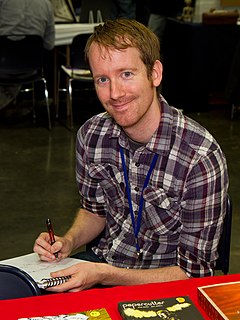A Quote by Luis von Ahn
Before the Internet, coordinating more than 100,000 people, let alone paying them, was essentially impossible. But now with the Internet, I've just shown you a project where we've gotten 750 million people to help us digitize human knowledge.
Related Quotes
The richer people, when they get another $100,000, or another million, or 10 million, don't tend to spend it as much as the poorer people would if they got another $100 or $1,000 or $5,000. All the empirical evidence suggests that the rich tend to consume a lower proportion of income than middle and lower-income people.
In one sense, the Internet is like the discovery of the printing press, only it's very different. The printing press gave us access to recorded knowledge. The Internet gives us access, not just to knowledge, but to the intelligence contained in people's crania, access to the intelligence of people on a global basis.
A lot of association on the internet is highly constructive. There are people interacting, interchanging ideas, making plans, coordinating activities; take any of the popular movements, a lot of the organization is through the internet. We want to have a demonstration or we want to have a meeting, its done through the internet. I think that's all to the good.
There are people all around us whose lives are masterpieces of service. One thinks of parents working two or three jobs to serve their families and community. So, too, many in the military or in nursing or teaching. As the needs are endless, so are the possibilities of service. Now, more than ever, empowered by the Internet, more of us can serve in more ways than ever before in history.
I don't care if Trump has $100 billion. He's earned it. He's had a job. There are ways you can track what he has earned. The Clintons don't want to admit how they've earned their money. They love to brag about their wealth, but how did they get it? Making speeches, $750,000 for one speech from a firm that now has close ties with Mrs. Clinton as a secretary of state and potentially as president? It's $750,000 for one speech.
There's always something in new technology that promotes anxiety on the one hand, but also grieving on the other. With the internet, I think we can remember a time when people said "I don't use email," or "I'm not going to get email." I once had to do a piece on people who had never used the internet and refused to start and I found three people. But when I talked to them, they had used it, at some point or another. It's almost impossible to stay off the internet entirely. We feel as though we didn't get to make a decision. There's this new dawn and we all have to embrace it.
The rules have changed as information and technology evolve, but it's essential that people stay in the streets, stay visible in their communities, on the news, on the Internet, and in this crucial public discussion. There are a million people just like you (or me), sharing the same doubts, fears, and insecurities that keep us from speaking out. Finding each other in our neighborhoods, online, in the streets - this is what keeps us from believing we're alone, from giving in to hopelessness.



































